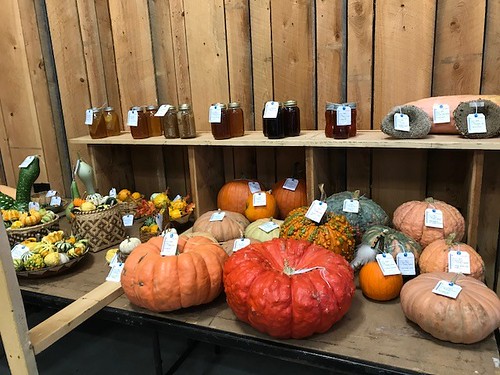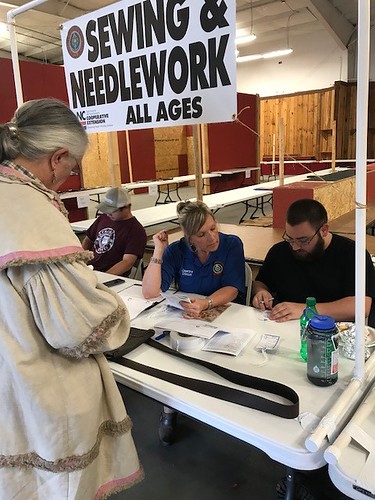
Sweet sourwood honey flowed, and pickled banana peppers, beets, pearl onions and more stood proud in the Cherokee Fall Festival in Cherokee, North Carolina. There was also stunning, blue ribbon-worthy sewing and needlepoint, plenty of fresh cobs of Indian corn, and vibrant gourds and squash in oranges, rusts, golds, browns and other glorious fall colors. The items were homegrown and handmade by members of the Eastern Band of Cherokee Indians (EBCI). Student volunteers sold the items at the fair and chatted with visitors.
The community festival – which brought out the end-of-summer best – is just one of many inspiring initiatives in a new partnership with the EBCI North Carolina State Cooperative Extension and the Forest Service Oconaluftee Job Corps Civilian Conservation Center (JCCCC).
The two organizations recently signed an official partnership agreement. Together, they’ll continue their ongoing focus on crop cultivation, irrigation, and planting assistance and training for youth in the use of pesticides, canning, financial literacy, and cultural horticulture.
“This collaboration will help us provide an opportunity for the young people of our community to give back and to learn about the cultural significance of natural resource awareness and value,” said Oconaluftee Job Corps Center Director Jimmy Copeland. “The partnership will also allow youth to learn skills that will impact their lives and our environment forever.”
The Oconaluftee JCCCC borders the tribal lands of the Eastern Band of the Cherokee.
The Job Corps program is the nation’s largest residential, educational, and career technical training program that prepares economically disadvantaged youth, ranging in age from 16 to 24, for productive employment. Civilian conservation centers are associated with national forests or grasslands and are operated by the Forest Service under an interagency agreement with the U.S. Department of Labor, which has the overall management of Job Corps.
The Forest Service operates 26 JCCCCs that span seven regions, 23 national forests and grasslands, and 17 states with a capacity to house, educate, and train over 4,300 enrollees. In addition to offering enrollees the opportunity to earn their high school diploma or general equivalency diploma and enroll in college classes, JCCCCs offer vocational training in more than 30 occupations, many of which are pre-apprenticeship programs managed by international trade unions.
“This partnership truly connects youth with our Forest Service mission of caring for the land, and serving people,” said Copeland. “Our lands have value and our stewardship of them is critical to the future.”



